Opinion

The crowded opening reception featured keynote remarks by Mark S. Massa, S.J., and Rev. Gardiner Shattuck about the story’s key figures, Daniel Berrigan, a Catholic priest, and William Stringfellow, a civil rights lawyer and lay Protestant theologian.
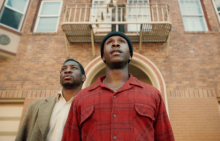
The Last Black Man in San Francisco is a film of operatic intensity, poetic emotion, political clarity, and a touch of magic realism.

“Amor Eterno,”or Eternal Love, was written in 1984 by the famed Mexican singer and song writer Juan Gabriel, or JuanGa, after his mother passed away. It has become a standard that is played at funerals, wakes, get-togethers, and even restaurants across the U.S., Mexico, and the world to remember family and loved ones who have passed away.

As we continue to enter deeper into the crisis of climate change, into the reality of human rights abuses and eruptions of violence happening not just here but all over the world, perhaps we need to take a different approach in our relationship to one another and our creature-relatives all over the earth.
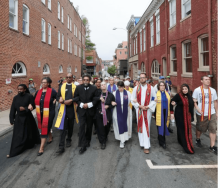
Yes, August 12, 2017 was a horrible day that should be named for its extreme and intolerable act of white nationalism, but people of color are navigating detrimental impacts of white supremacy every day, both personally and institutionally within our education, economic, and criminal legal systems.

70 U.S. healthcare organizations endorsed a report about public health and climate change.

Shall Christ or Cain reign in our American civilization?
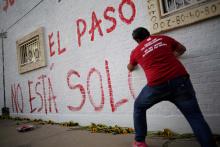
Some Latinx people have known — and others have suspected — this land is not safe for us, but the extent to which that suspicion has been confirmed in El Paso is terrifying. The perpetrator in this massacre was deliberate in his plan to counter the “Hispanic invasion.” It’s tempting to believe all this has been incited by the current president’s violent rhetoric. But while that rhetoric has added much fuel to the fire, the fire has been burning for a long time.

I searched for other friends from that group. A few more had similar pictures. The reasoning for such firepower switches quickly and seamlessly between hunting and protection. My father, retreating further into radical, end times theology had given me a loaded pistol as a college graduation gift. I stayed with a friend of his after college, an older woman in her 60’s who stocked her home with so many canned goods, the place felt claustrophobic. She explained she wanted to be prepared for when the antichrist controlled the food supply. For she and my father, the war on God and country was never theoretical. The antichrist would work through legislation and technology just as much as by demonic force.

During the 110th National Convention of the NAACP in Detroit, Mich., thousands of delegates from the Youth & College Division attended. Convention enables moments of intentional innovation, erects bridges of generational understanding, forges highways of collaboration, paves paths of opportunity, and preserves the legacy of the ancestors.

Thousands of activists gathered in Detroit to perform mass demonstrations on Tuesday afternoon, just hours before the opening of the second presidential primary debate. The effort, spearheaded by Frontline Detroit, a coalition of organizations made up of members deeply impacted by pollution and environmental racism, produced demands for addressing the pervasive environmental and economic injustices that have plagued Detroiters for decades.

While we shouldn’t be sucked into Trump’s sinister game of getting distracted by and responding to every outrageous and egregious tweet or statement, there is also a corrosive and malignant danger of remaining silent. If we are silent, the cancer of racism will become more and more acceptable and normalized, emboldening white nationalists and supremacists and leaving already vulnerable communities even more vulnerable.
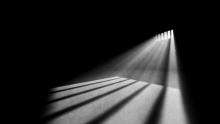
Each of the 62 men in the federal prison in Terre Haute, Ind., are quite likely guilty of horrible crimes, and those crimes should have consequences. To be anti-death-penalty is not to be anti-victim or anti-justice. To be anti-death penalty is simply to insist that we can deal with violent crime without mirroring the violence and taking another life.
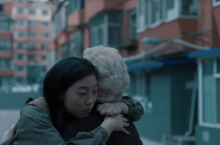
The film challenges Western beliefs about familial and individual responsibility, as well as the often-unrecognized personal sacrifices we make for the ones we love.
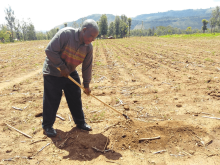
As the climate crisis intensifies and crystallizes, the tangible effects of climate change today are disproportionately dispersed on both the national and global scale. Communities and entire nations who do the least to contribute to rising greenhouse gas emissions bear the enormous burden of climate disaster first and worst on their bodies and their livelihoods.
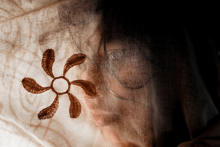
Interestingly, the ambit of 'flashbulb memory' provides insight into cases where courts have failed to prosecute crimes of sexual violence — those hearings took place years after the actual event. In those years, memories we thought to be foolproof had deteriorated as survivors battled trauma, tragedy, and time. As testimonies were vetted for reliability, misconceptions around memory articulated through each step of the legal processn and increased the probability of a miscarriage of justice.
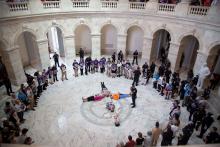
When the U.S. Capitol Police issued three warnings for us to disperse, most of those gathered stepped back behind the police line, but five stepped forward and laid down in the shape of a cross in the center of the rotunda. A cross of human bodies. Dozens more formed a eucharistic circle around this cross.

This film tells the story of Bryon Widner's exit from white supremacy and how love redeemed his life.
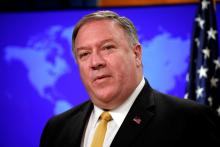
From July 16-18, Secretary of State Mike Pompeo hosted the second annual Ministerial to Advance Religious Freedom, which is touted as the “the largest religious freedom event of its kind in the world.” More than a thousand attendees representing delegations from 106 countries arrived in Washington D.C. to discuss challenges to religious liberty and how to collectively address the threats facing people of faith worldwide.
